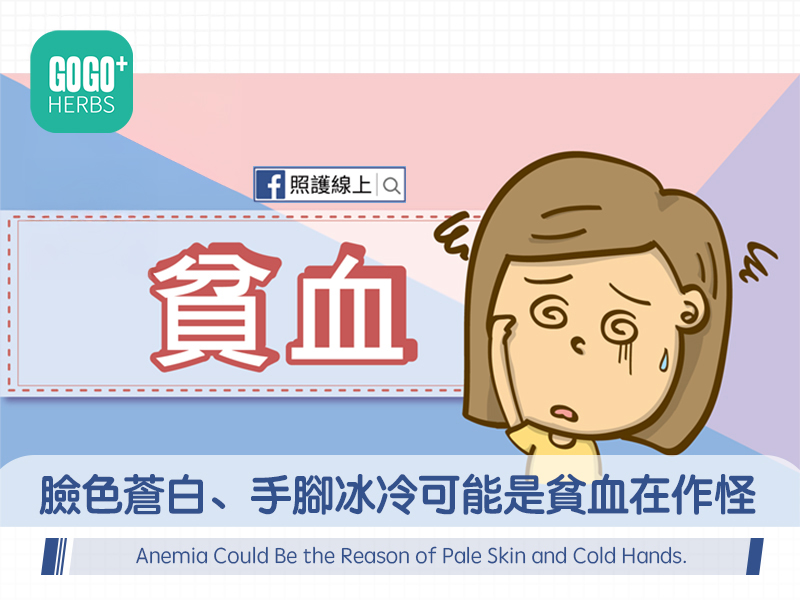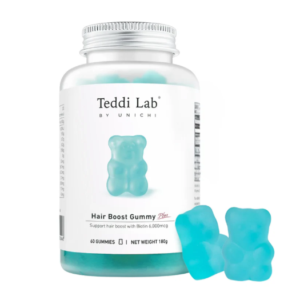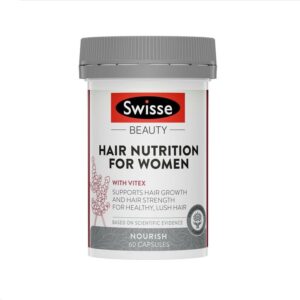
Anemia Could Be the Reason of Pale Skin and Cold Hands.
When we see a woman sitting in a seat with a pale face, holding her head and breathing slightly, we may go up to her and ask worriedly: "You look so pale, are you dizzy?" And this woman may tell you that she has been suffering from "anemia" recently.
Everyone should be familiar with white blood cells, red blood cells and platelets. White blood cells are responsible for fighting infection, and platelets form blood clots. The reason why red blood cells are red is that there is an important iron-containing protein in them - hemoglobin. Hemoglobin can transport oxygen to various organs and tissues, and transport carbon dioxide from tissues back to the lungs, so red blood cells are very important!
Let's first look at the life cycle of red blood cells: the bone marrow collects iron, folic acid,Vitamin B12After reacting with other nutrients, red blood cell precursor cells will develop, and after several days of differentiation, they will gradually enter the blood circulation and develop into mature red blood cells. Mature red blood cells can stay in the blood circulation for about 120 days before being destroyed by metabolism.
If the red blood cells are not strong enough or their number is insufficient to complete the task, the efficiency of gas exchange will not be good enough and the patient will feel tired, weak, dizzy, have cold hands and feet, shortness of breath and rapid heartbeat. In the most serious cases, the patient will suffer from tissue hypoxia, shock and cardiopulmonary dysfunction.
The World Health Organization (WHO) defines anemia in adults as hemoglobin levels less than 12.5g/dL. Intuitively, anemia means insufficient blood. What causes insufficient blood? One is of course excessive blood loss, which means insufficient blood. In addition, reduced red blood cell production or excessive destruction in the body can also lead to anemia.
Too much blood loss will lead to anemia. The cause of blood loss may be acute car accidents, knife wounds, gunshot wounds, chronic gastrointestinal bleeding, or women's heavy menstrual flow, which causes heavy blood loss every month.
For people with enough iron in their bodies, the body will accelerate the production of red blood cells after blood loss. Therefore, a week after blood loss, a lot of new blood will be added to the blood to try to make up for the insufficient amount; but if the blood loss is long-term or too much or too fast, anemia will still occur.
In the case of gastrointestinal bleeding such as hemorrhoidal bleeding and gastric ulcer bleeding, patients will notice that they have black or bloody stools; however, if the gastrointestinal bleeding is very slow, the stool color may not change, so the patient may not notice that they continue to have a small amount of gastrointestinal bleeding.
When it comes to menstruation, the amount of menstrual blood varies greatly from woman to woman, ranging from 10cc to 250cc. Most women only know their average amount of blood and have no way to compare with others. They will only consult a doctor if they have a lot of blood clots in their menstrual blood, often bleed a lot at once, or need a lot of sanitary napkins. Many women do not notice that their average amount of blood isHeavy menstrual bleeding, even to the extent of anemia.
In any case, if an adult is diagnosed with anemia, especially iron-deficiency anemia, the doctor will probably ask about the medical history and consider various possibilities of blood loss.
In addition, if too many red blood cells are destroyed, they will die before they can achieve their goal. They will die early before they can live to 120 days, and their life cycle is less than 40 days. As long as the speed of red blood cell destruction cannot keep up with the speed of its replenishment, it will cause anemia, which is called hemolytic disease. More destroyed red blood cells will lead to an increase in indirect bilirubin in the blood.
Intracellular hemolytic diseases are usually hereditary, such as diseases that change the shape of red blood cells, such as spherocytosis; extracellular hemolytic diseases are often acquired, which may be caused by drugs, infection, or immune diseases such as lupus erythematosus, causing the body's own antibodies to attack red blood cells.
The third reason is the decrease in red blood cell production. The bone marrow may be affected by chemical poisons, infections, drugs or autoimmune diseases, producing too few red blood cells. The bone marrow may also be affected by leukemia, cancer metastasis, etc. and cannot produce red blood cells. There may also be a lack of raw materials for the production of red blood cells, such as a lack of iron, vitamin B3 or folic acid.
There are so many causes of anemia that if you count carefully, you can probably distinguish 400 types. We cannot introduce them one by one. Next, let's look at a few common types of anemia:
iron deficiency anemia
This is the most common type of anemia, which means that the body does not store enough iron. It often occurs in pregnant women. Long-term vegetarians, breastfeeding, heavy menstruation, etc. may cause the body to lack iron and be unable to produce enough red blood cells.
If you are diagnosed with iron deficiency anemia, the doctor will first determine whether there is bleeding and find the bleeding point to stop the bleeding, such as treating gastric ulcers and giant uterine fibroids. If it is believed to be caused by diet, you can change your eating habits and take iron supplements.
Vitamin B12 and folic acid deficiency anemia
Eating too little meat can lead to vitamin B12 deficiency, while eating too little vegetables can lead to vitamin BXNUMX deficiency.Folic acidThe lack of these two raw materials for making red blood cells will cause anemia. You can change your eating habits and take oral supplements of vitamin B2 and folic acid.
Pernicious anemia
The stomach needs to secrete "intrinsic factor" to combine with vitamin B12 so that the vitamin B12 we eat can be absorbed in the body. Insufficient intrinsic factor affects the absorption of vitamin B12, which will lead to anemia. This type of anemia cannot be improved by oral vitamin B12 and requires vitamin B12 injections.
Thalassemia
Genetic anemia can range in severity from mild to extremely severe. In addition to being prone to occur in the Mediterranean region, it also commonly occurs in Southeast Asia and makes it more difficult for red blood cells to mature and differentiate properly.
Sickle cell anemia
A hereditary anemia disease that is more prevalent in Africa and India. The red blood cells change from their original biconcave disc shape to a sickle shape, making them more likely to die early, thus causing anemia.
Aplastic anemia
It can be hereditary, or the bone marrow may be affected by chemotherapy, infection, or radiotherapy, lacking enough stem cells and unable to differentiate into red blood cells. This type of anemia may be life-threatening, and in addition to blood transfusions, bone marrow transplantation may also be considered.
Anemia caused by chronic disease
Chronic diseases such as diabetes, chronic kidney disease, hypothyroidism, lupus erythematosus, rheumatoid arthritis, etc. can interfere with the production of red blood cells and lead to anemia. The chronic disease itself needs to be treated, and blood transfusions or erythropoietin injections should be considered when necessary.
related articles:
Related products:
-
ProVen – Women's Probiotics + Cranberry 3600 30 capsules
Original price was: $198.00.$138.00Current price is: $138.00. Add to Cart -
Unichi – Teddi Lab® Hair Growth Gummy Bears Upgraded Edition Sea Salt Green Grape Flavor 60 pcs
Original price was: $170.00.$125.00Current price is: $125.00. Add to Cart -
Sale!!
 Out of stock
Out of stock
GNC – Cranberries + Probiotics (Women's Formula) 300 Billion 30 Tablets
Original price was: $250.00.$188.00Current price is: $188.00. View content -
Swisse-Beauty Women's Hair Nutrition Capsules 60 Capsules
Original price was: $168.00.$118.00Current price is: $118.00. Add to Cart



































































